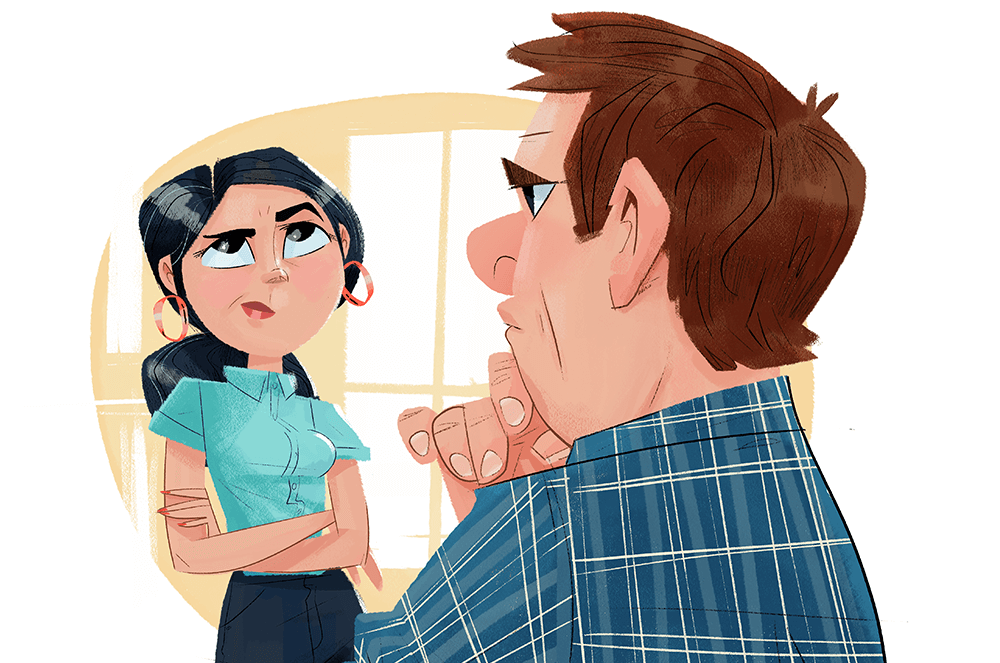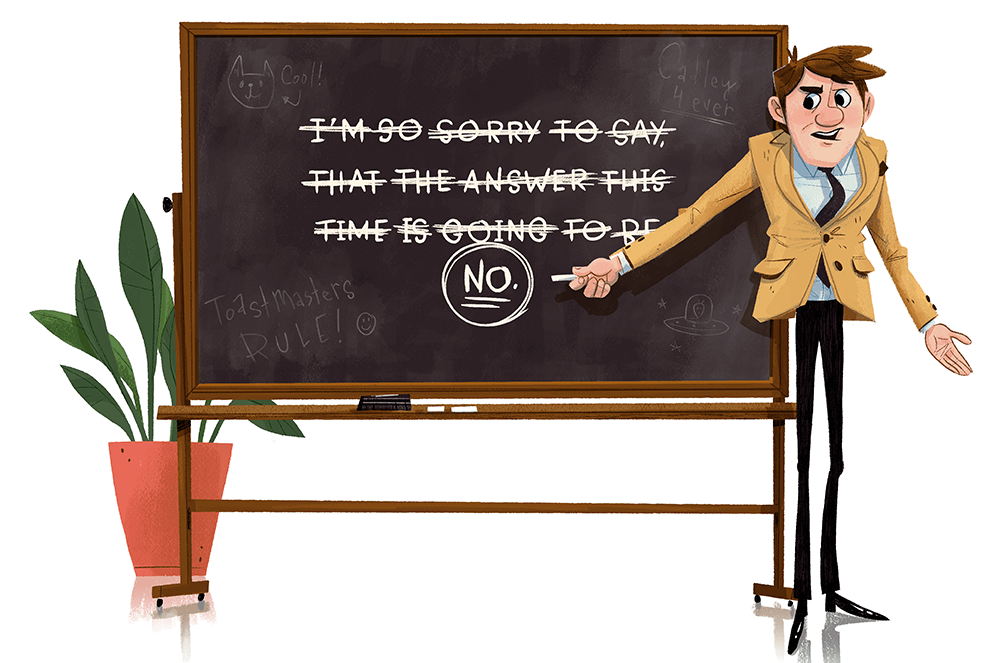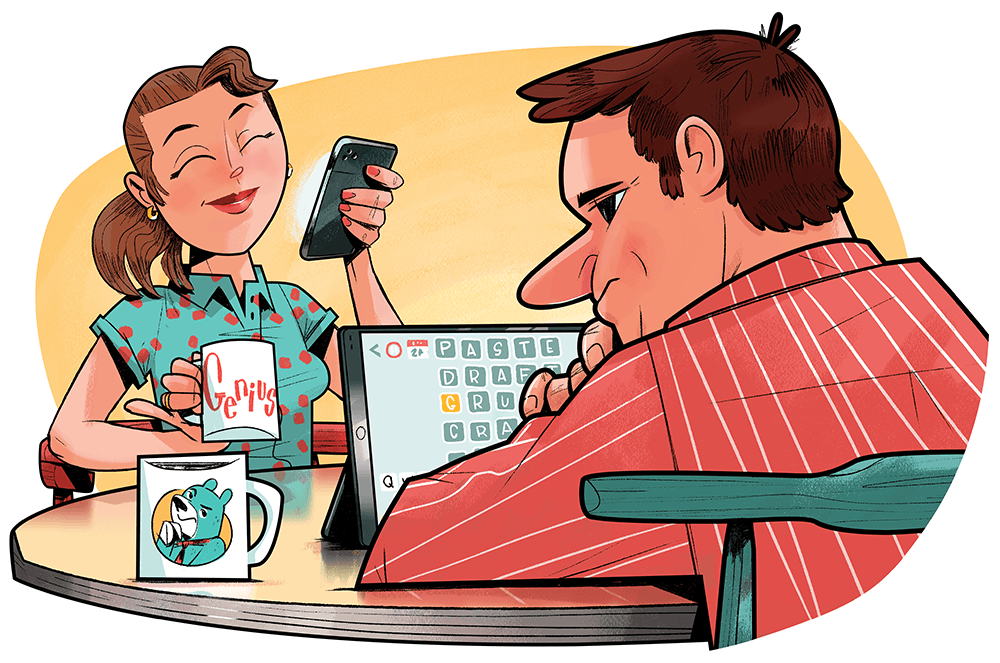
We all know that there is more to human communication than audible sounds, otherwise known as “words,” emanating from the larynx. There are facial expressions, hand gestures, head movements, lip formations, leg/foot activity, eye movements, and other forms of “body language” that convey one’s meaning just as clearly as the spoken word—if not more so. We all know people who say or do things that leave us speechless. These people are called husbands and wives.
I am married to a wonderful woman—smart, funny, talented, articulate, perceptive, knowledgeable. And yet there are times when she is literally dumbstruck, when she opens her mouth, but nothing comes out, when I can almost hear her quick, sharp mind scanning all 171,476 words in the English dictionary and failing to find one that even remotely expresses her feelings. Being fairly perceptive myself, I have noticed that these episodes appear to have something to do with me. I see these nonverbal signs as marital semaphores, signals that my ship is somehow off course and without a correction is likely to sink.
My spouse doesn’t need her whole body to make these signs. She can say it all from the neck up. First, there are the eyebrows. When raised, they say: Oh, really? And where did you get that idea? Then, of course, the eyes themselves, which contain a vast vocabulary of “looks” that say everything from You must be kidding to No jury would convict me. These eye movements can be subtle and hard to decipher, which is why I am always grateful for a good old-fashioned eye roll—with its unmistakable meaning: There’s a limit to my patience and you’re at the CAUTION: DO NOT ENTER sign. The only time I worry is when the eyes start to roll all the way back. It means that whatever I have done has caused my wife to decide her only recourse is loss of consciousness.
The eyes have even more to tell. They are often referred to as windows to the soul, and like all windows they have shades, called eyelids. If the shades are raised so high I can’t see them, it means shocked astonishment. If they are half-closed, she is trying to decide if I could have possibly meant whatever it is I just said or did. If they are closed completely, she is in denial, a sort of willful blindness to something she cannot believe she is hearing or seeing.
If my wife does something disagreeable, I make a sour face. She says that’s childish, which it is—I learned it from my children.
The lips are a simpler matter. They can only be “pursed,” as if to say: I do not approve. But then, that’s all they really need to say, isn’t it?
The head speaks as well. It has a normal lateral rotation of 30%, but the one I look for is a slow, barely perceptible side-to-side motion of no more than one or two degrees, indicating profound weariness, an exhausted attempt to ward off bottom-of-the-well despair, as in: Say goodnight, kill the lights, my sister was right.
Amazingly, even the back of the head has a language. I don’t know how—it’s just hair—and yet I can look at it and know with absolute certainty that, to paraphrase Hamlet, something is rotten in the state of my marriage.
Now, this business of unspoken meaning goes two ways. I respect and admire my wife tremendously, but she is not perfect. This is when it’s my turn to wave the semaphores. Unlike my wife, however, my eyes are not that expressive. If they’re open, I’m awake; if they’re closed, I’m asleep. And that’s about it. I do use facial expressions. If my wife does something disagreeable, I make a sour face. She says that’s childish, which it is—I learned it from my children. If she says something that I find illogical, I hold out my hands, begging for clarification. That’s when she gives me the eye roll … but I had my hands out first so I win!
I also cross my arms on my chest to let her know I’m not buying whatever she’s selling. It’s a classic defensive posture, meant to show I intend to stand my ground, and it works. The only downside is there’s not much dinner conversation. Just the sound of chewing, really.
There’s only one nonverbal way out of this impasse—a hug. If it’s returned … well, that’s language even a troglodyte could understand. And I can, too.
John Cadley is a former advertising copywriter, freelance writer, and musician living in Fayetteville, New York. Learn more at www.cadleys.com.







